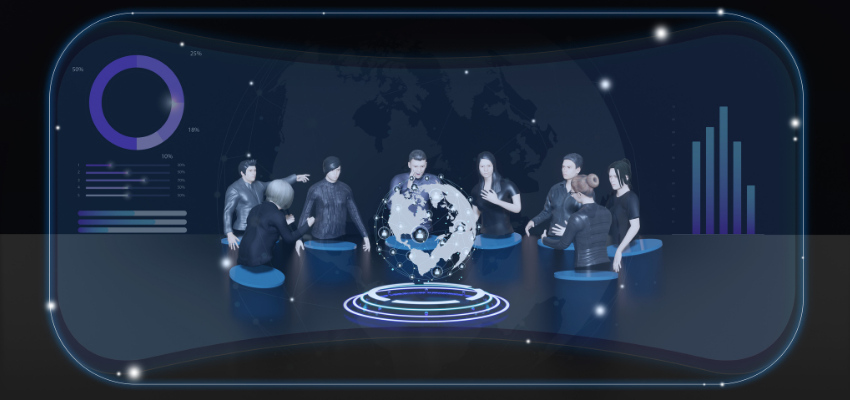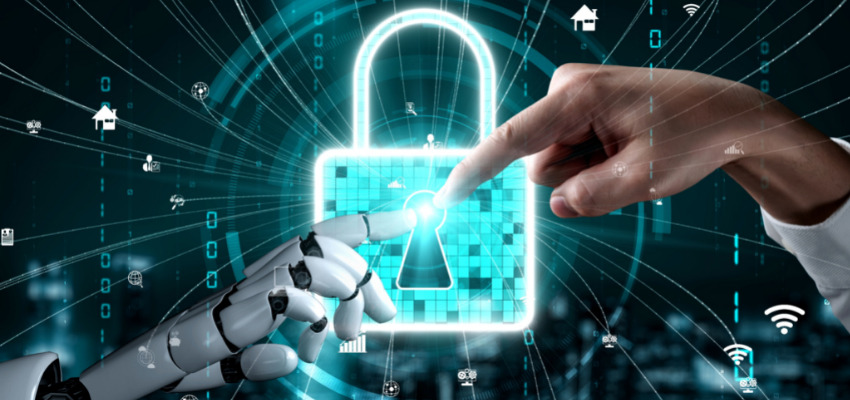Show:
The Metaverse and Its Cybersecurity Risks: Are We Ready?
We’ve all heard the term “Metaverse” recently, and it’s hard not to get excited. The idea of entering virtual worlds, attending digital concerts, working from virtual offices, or even shopping online feels futuristic but is becoming real. However, with this excitement comes a serious consideration: security. We’ve seen the internet evolve, and each step brought new risks. The Metaverse is no different.
As we move into these virtual worlds, the need to protect our personal data, our digital identities, and our transactions is greater than ever. Cybercriminals are always looking for new opportunities, and the Metaverse presents them with a wide-open target.

In this article, we’ll break down what’s at stake and how we can begin to protect ourselves in this exciting but risky new digital space.
1. Understanding the Metaverse
The Metaverse is a fully immersive digital experience where people can live, work, and play in a 3D environment. In this space, virtual and physical realities blend together. Users can navigate these virtual worlds using avatars, interact with others, and even own digital assets. While it sounds like a dream come true for tech enthusiasts, it’s also a dream come true for cybercriminals. Cyber risks grow exponentially in such interconnected environments. A single breach could impact entire virtual ecosystems, putting digital assets, personal data, and even financial information at risk.
As the Metaverse continues to expand, so does the need for professionals to be equipped with the knowledge to protect it. Many individuals interested in tackling these cybersecurity issues are pursuing a master’s degree in cybersecurity. With the rise of online education, it has become even more accessible for those looking to specialize in protecting digital environments like the Metaverse. By pursuing a masters in cybersecurity online, professionals can prepare for the evolving landscape of digital threats without having to disrupt their current careers.
So, what kinds of threats will the Metaverse present? The risks range from identity theft to new forms of hacking and data breaches. With so much of our lives being digitized in the Metaverse, the consequences of a cyberattack could be devastating. Imagine a hacker taking control of your avatar, gaining access to your financial data, or stealing your digital assets. The Metaverse, though fascinating, is a massive target for these kinds of malicious activities.
2. Privacy Concerns in the Metaverse
One of the biggest concerns in the Metaverse is privacy. In a virtual world where your digital identity is key to how you interact, how much control do you really have over your personal information? Unlike the traditional internet, where you can remain somewhat anonymous, the Metaverse will likely require more detailed information about you to function properly. This could include biometric data, behavioral patterns, and even location tracking. But who has access to this data, and how is it being used?
In the Metaverse, your digital identity represents your real-life identity. If your digital identity is compromised, the consequences could be severe. Cybercriminals could exploit this information to impersonate you, steal your assets, or manipulate your online presence. Even worse, because the Metaverse will likely involve real-time transactions and interactions, you might not even realize your data has been compromised until it’s too late.
The issue of data collection also raises concerns about how companies that operate within the Metaverse will use your personal information. Will they sell your data to third parties? Will they use it for targeted advertising? These are questions that need to be answered before the Metaverse becomes a fully functioning reality.

3. New Forms of Cyberattacks: What We Might Face
As the Metaverse grows, so will the variety of cyberattacks. We’ve seen attacks like phishing, malware, and ransomware in the traditional online world, but the Metaverse will bring entirely new opportunities for cybercriminals. One of the most alarming possibilities is the hijacking of digital identities and assets. Imagine logging into the Metaverse and discovering that your avatar has been taken over by a hacker. Not only could they lock you out of your own account, but they could also use your avatar to commit crimes, steal digital property, or manipulate others.
Another potential risk is the exploitation of virtual currencies. Many virtual worlds will rely on cryptocurrencies or tokens for transactions, which makes them a target for hacking. Cryptocurrencies are already a common target for cybercriminals, but in the Metaverse, the stakes will be even higher. A successful hack could wipe out someone’s entire virtual fortune in seconds.
4. The Role of Cybersecurity in the Metaverse: What Needs to Be Done
Given all these potential threats, what can we do to protect ourselves and others in the Metaverse? First, we need to develop advanced cybersecurity protocols that are specifically designed for this new environment. Traditional security methods like firewalls and antivirus software won’t be enough to protect users in a fully immersive digital space. The Metaverse will require real-time monitoring, encryption, and security measures that can adapt to new threats as quickly as they arise.
Second, education is key. Just like we’ve learned how to protect ourselves online through strong passwords and two-factor authentication, we will need to learn how to safeguard our digital identities and assets in the Metaverse. This means being aware of the risks, knowing how to spot suspicious activity, and understanding the best practices for protecting personal information.
Is the World Ready for Metaverse Cybersecurity?
So, are we ready for the cybersecurity challenges of the Metaverse? It’s hard to say. While there are certainly efforts underway to address these issues, the truth is that the Metaverse is still in its early stages. We don’t yet have universal standards for security in these virtual environments, and many of the risks are still unknown.
However, what we do know is that the need for cybersecurity expertise is greater than ever. As the Metaverse continues to develop, the demand for cybersecurity professionals will increase. Governments, companies, and individual users all have a role to play in ensuring that these new digital spaces are safe and secure for everyone.
All in all, the Metaverse has the potential to revolutionize the way we interact with the digital world, but it also comes with a new set of risks. From privacy concerns to emerging cyberattacks, there are real dangers we need to address. While the excitement around the Metaverse is justified, we can’t afford to ignore the cybersecurity challenges it presents. By taking steps to understand and mitigate these risks now, we can build a safer, more secure virtual future.

 Return to Previous Page
Return to Previous Page








